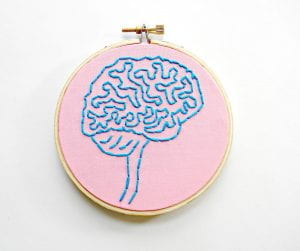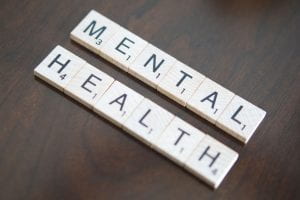
While it seems that most people today would agree that taking care of one’s mental health is important, it may come as a surprise that mental health is actually a human right. According to Article 25 of the Universal Declaration of Human Rights, all people have the right to “a standard of living adequate for the health and well-being of himself and his family…” The Office of the United Nations High Commissioner for Human Rights has declared that “that the right to health is a fundamental part of our human rights and or our understanding of a life in dignity.”
Mental Health as a Human Right
The United Nations Human Rights Council recognizes three principles regarding the right to health:
The first is that it is an inclusive right. This means that it extends “not only to timely and appropriate health care, but also to the underlying determinants of health.” This includes things like access to clean water, safe working conditions, and important information about health. These factors, while clearly relevant to physical health, are also important in maintaining one’s mental health.
The second principle is that the right to health includes both freedoms and entitlements. Freedoms would include things like “the right to control one’s health,” while entitlements would include things like “the right to a system of health protection that provides equality of opportunity for people to enjoy the highest attainable standard of health.” This is significant because one needs to be able to access important information and resources related to mental health in order to have meaningful support for their mental health.
The third principle is that the right to health is a broad concept that can be divided up into more specific rights. For example, there are some aspects of health that are specific to people who are assigned female at birth, and those aspects are associated with specific rights. The right to mental health (and the rights associated with it) is one of the many rights that make of the right to health.
Mental Health Impacts Your Overall Future Health
According to the World Health Organization’s Constitution, health is “a state of complete physical, mental, and social well-being and not merely the absence of disease or infirmity.” Based on this, taking care of your mental health is not simply making sure that you are not actively going through a crisis. Being healthy is more than just surviving. Taking care of your mental health involves taking daily steps to care for yourself that not only improve your health in the present, but also protect your health in the future.
Having poor mental health puts you at a greater risk for physical health problems. According to the American Psychological Association, having a mental health condition reduces men’s life expectancy by an estimated 20 years and reduces women’s life expectancy by about 15 years. This is in part due to the fact that nearly two-thirds of people with mental health conditions do not seek any form of treatment.
Mental Health is a Key Part of Accessing Many Other Rights
In addition to being a right on its own, maintaining good mental health is also a key part of being able to meaningfully access many other human rights. For example, even when given all the necessary tools that are directly related to education, struggling with mental health issues can impede a person’s ability to receive a truly meaningful education. This is reflected by the long-term effects of depression. In one study, scientists found that individuals who faced depression during mid-adolescence and continue to deal with it as young adults are at an increased risk of educational underachievement and unemployment. One’s mental health can also impact their access to other rights such as the right to participate in the cultural life of their community, the right to rest and leisure, and the right to work.

You Have to Help Yourself Before You Can Help Others
You’re probably familiar with the concept of putting your oxygen mask on before assisting others on a plane. If you are struggling to breathe yourself, not only is your ability to help others inhibited, but you’re putting your own health and well-being at risk of harm. This can be applied to mental health as well. If you are facing serious struggles with your own mental health, it is important to focus on helping and support yourself before taking on responsibilities related to other people’s mental health.
For this reason, the maintenance of good mental health is especially important for people who work in fields such as human rights advocacy. The world of human rights is full of issues and topics that can be emotionally draining, so one can easily become overwhelmed by it all. It is vital that advocates make their mental (and physical) health a priority, even if their main concern is helping others. Self-care needs to be a part of any human rights advocate’s tool kit.
The Basics of Self-Care
Raphailia Michael, a licensed counseling psychologist, suggests that there are three golden rules to starting self-care:
- “Stick to the basics.” This makes it easier to include self-care into your schedule, make it a part of your regular routine, and figure out what works best for you.
- “Self-care needs to be something you actively plan, rather than something that just happens.”
- “Keeping a conscious mind is what counts…if you don’t see something as self-care or don’t do something in order to take care of yourself, it won’t work as such.”
Michael also gives a basic checklist of self-care tasks that can apply to pretty much anyone. This list includes things such as eating a nutritious diet, getting enough sleep, following up with medical care, and looking for opportunities to laugh every day.
It is so easy to get caught up in the hustle and bustle of everyday life and forget to take care of oneself. We all do it sometimes. It is important that we set aside time to properly take care of ourselves and pay attention to our own needs. Mental health matters just as much as everything else that is going on, and that’s something we need to remember.

